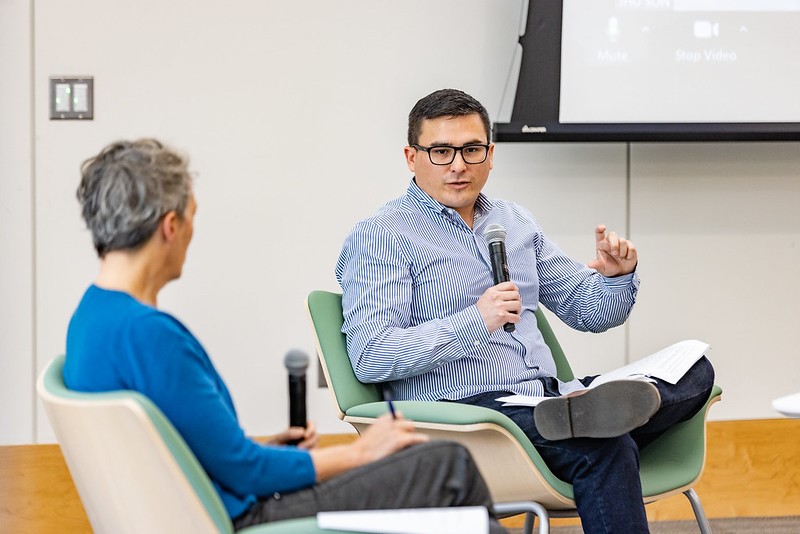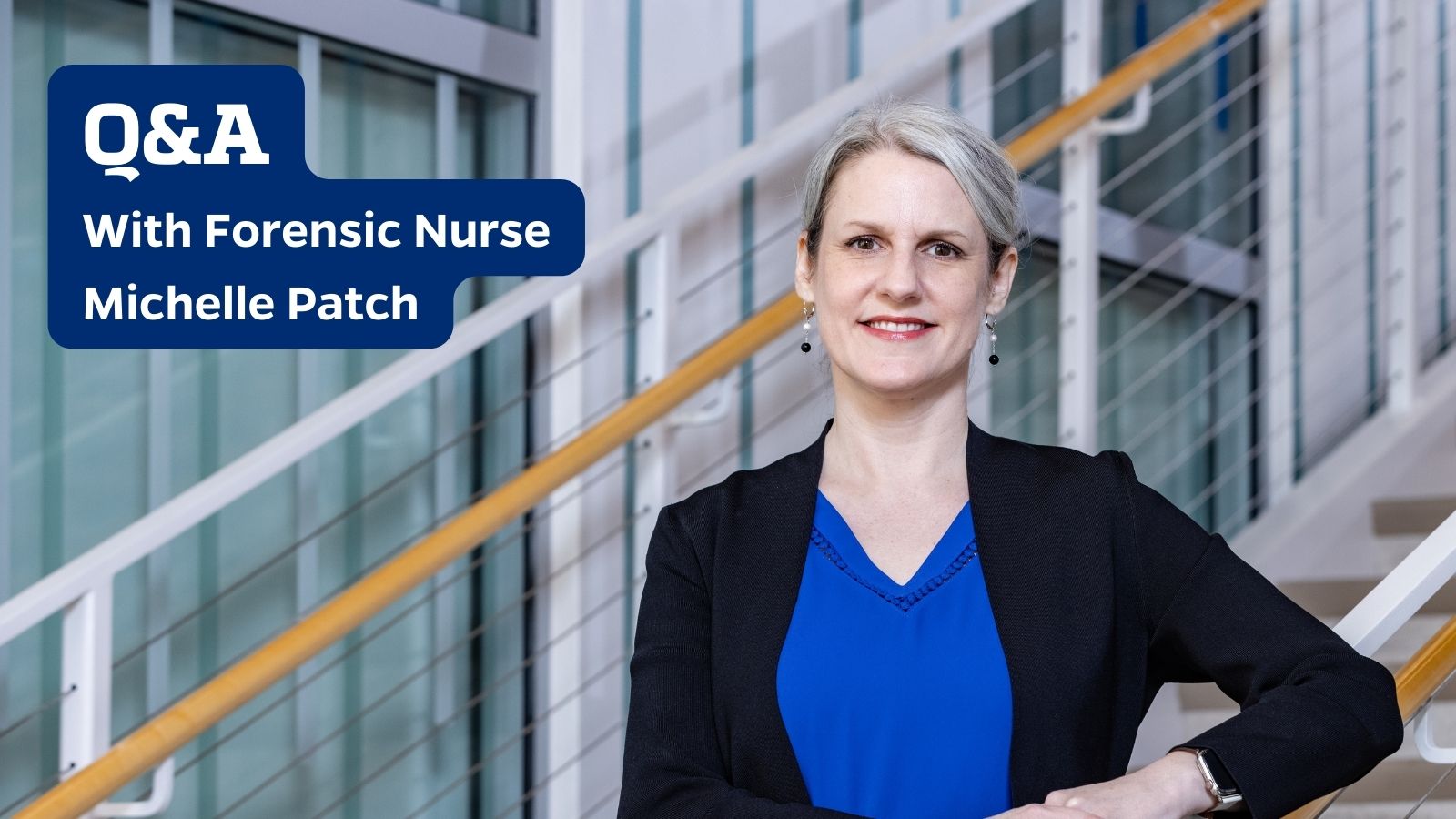Fernando Mena-Carrasco already possesses the qualifications to lead a health center, the experience and the degrees (MSN ’18, BSN ’15) to teach at the Johns Hopkins School of Nursing, the drive to make an impact in community and mental health nursing.
That would be a heck of a launchpad for most folks. Mena-Carrasco aims even higher.
“Back for some of the nerdiness!” he proclaims of his return to the JHSON student body, this time as part of its PhD program.
“I would like the focus of my work to be on immigrants and their offspring, specifically Latino immigrants,” explains Mena-Carrasco, chief of the Center for HIV/STI Integration and Capacity at the Maryland Department of Health through February 2023 and today president of the Johns Hopkins Nurses’ Alumni Association. “It was during my training when I met fellow students and mentors who strengthened my resolve to integrate clinical practice with social justice advocacy. I learned that nurses not only provide clinical care but have a critical role in policy design and leading systems of care.”
Why the PhD?
“As a first-generation son of immigrants who was born in rural Iowa, I have experienced periods of dependency on targeted public health programs, like Medicaid and Food Stamps,” he writes in the essay that accompanied his recent application for a Substance Abuse and Mental Health Services Administration (SAMHSA) fellowship. “As a result of my lived experience, I have spent my career passionately serving low-income Latin American immigrant adults and their families as a clinical nurse, social worker, and public administrator. From the vantage point provided by these diverse roles, I have learned that research is an essential and powerful tool to inform policy reform and promote behavioral health equity. This is my reason for pursuing my PhD at the Johns Hopkins University School of Nursing; to bolster my methodological, analytical, and advocacy skills to enable me to drive structural change nationally.”
Though new to the PhD program, Mena-Carrasco had already been part of several published research projects:
Gresh, A., Mena-Carrasco, F., Rauh, A., & Pfaff, T. (2017). Utilization of communities of practice for ongoing learning and knowledge dissemination: Making the case for the Global Alliance for Nursing and Midwifery (GANM). Nurse Education in Practice, 26, 64–67.
Mena-Carrasco, F., Pemberton, S., Chanmugam, A., Dowd, C., Rice-Assenza, J., & Stewart, R. W. (2016). Interprofessional Precision Care: Coming Together to Improve Outcomes. Southern Medical Journal, 109(11), 688–689.
Gresh, A., Dallman, E., Johnson, E., Mena-Carrasco, F., Rosales, L., Pantaleon, V., Davidson, P. M., & Sharps, P. (2015). The Role of the World Health Organization Collaborating Centers: Perspectives of Future Global Nurse Leaders. Nurse Leader, 13(5):44-48.
His teaching experience at JHSON includes clinical instructor roles in Psychiatric Mental Health Nursing and Population and Public Health Nursing courses, as well as teaching assistant for the Policy Honors Seminar.
While working at Johns Hopkins Hospital, Mena-Carrasco co-led the implementation of the Language Access Community at the Armstrong Institute for Patient Safety and Quality, helping to oversee the roll-out of policies to enhance care for patients and family members with limited English proficiency.
From here, “My goal is to generate and disseminate quantitative research that elucidates the effects of integrated primary care models addressing depression, anxiety, and other ambulatory-sensitive conditions, including alcohol and opioid use disorders. This is paramount, as Latinos are currently the youngest, largest, and second-fastest growing minority population in the U.S., highlighting the importance of intervening with a scale that is proportionate to their size and level of disadvantage before they get older. My goal is to anchor my research in the lived experience of Latin American immigrant communities in the U.S., examining quantitative data characterizing the outcomes of integrated primary care models (i.e., mind, body) as well as the interaction with social determinants, including financial strain and health insurance status, that may be ameliorated through policy action.”
Elevator speech? Check.

 Birth Companions Talk Doulas and Maternal Health with Mayor Brandon Scott
Birth Companions Talk Doulas and Maternal Health with Mayor Brandon Scott Forging Policy: How Can Doulas Improve Black Maternal Health?
Forging Policy: How Can Doulas Improve Black Maternal Health? Global Service Learning: Guatemala
Global Service Learning: Guatemala The Returned Peace Corps Volunteer to Nurse Pipeline
The Returned Peace Corps Volunteer to Nurse Pipeline Q & A With Forensic Nurse, Michelle Patch
Q & A With Forensic Nurse, Michelle Patch





